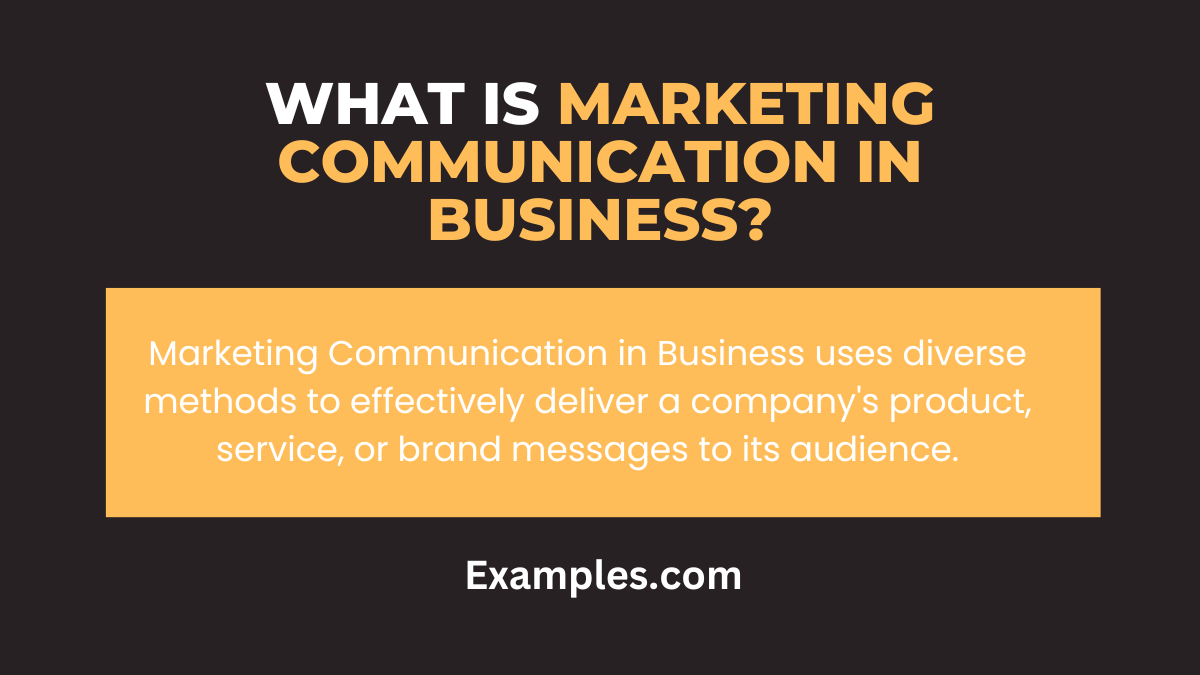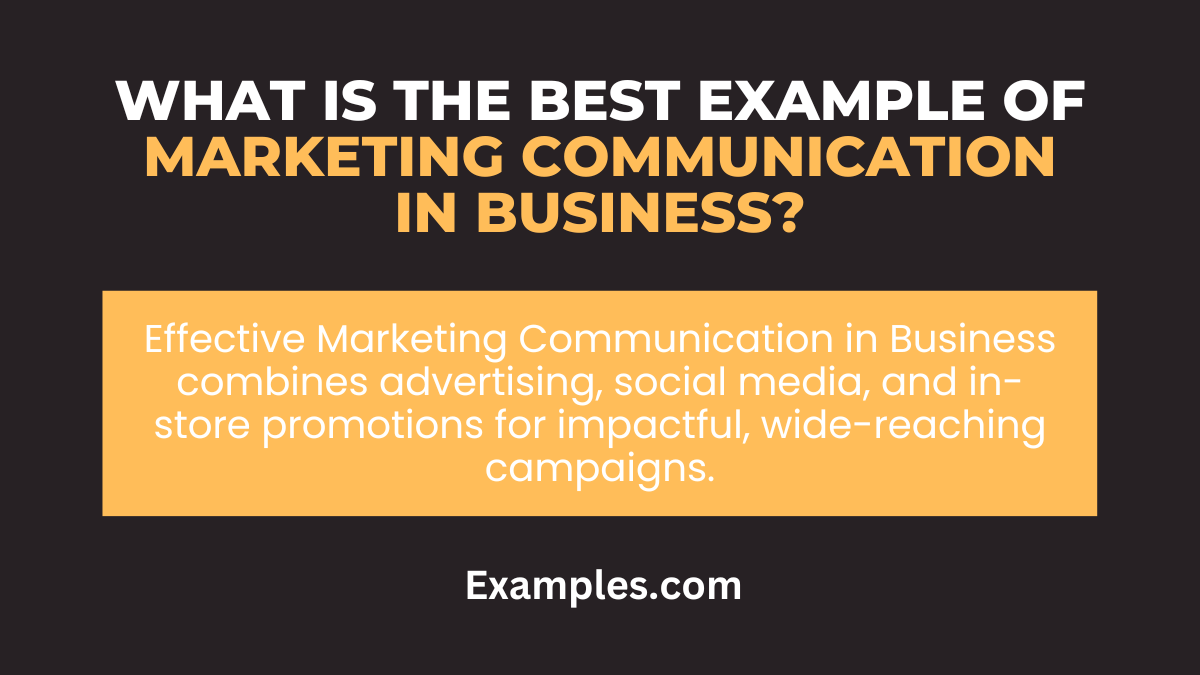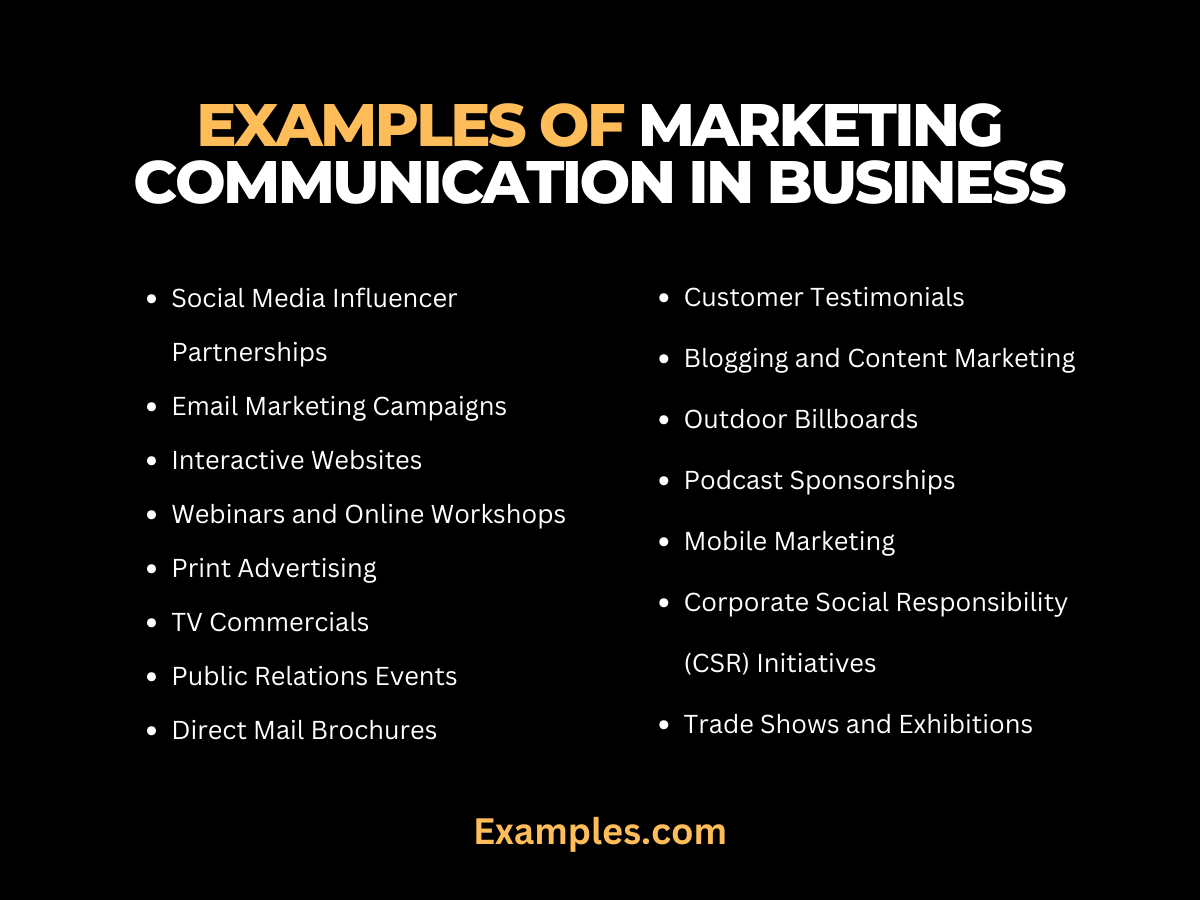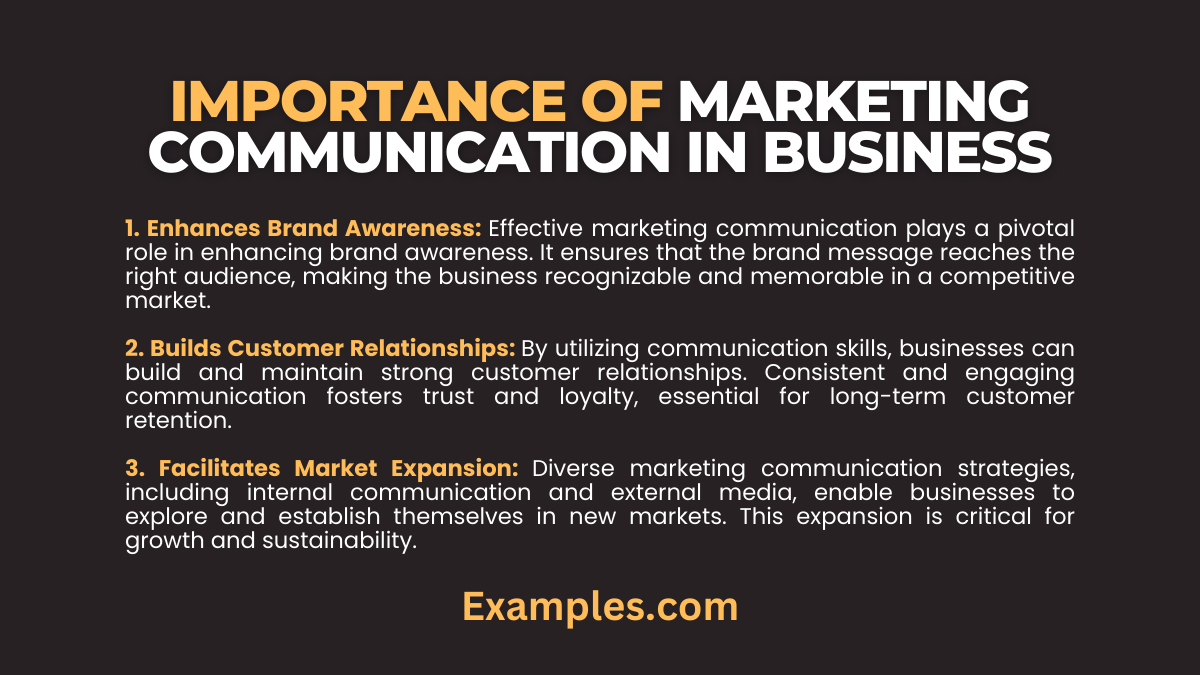14+ Marketing Communication in Business Examples
Explore the dynamic world of Marketing Communication in Business with our complete guide. Delve into a range of real-world examples, showcasing how effective communication strategies can transform businesses. From internal communications to public relations, this guide covers all the essentials, providing you with the tools and knowledge to excel in the ever-evolving landscape of business communication. Perfect for professionals eager to enhance their communication prowess in the business arena.
What is Marketing Communication in Business?

Marketing Communication in Business refers to the various methods and strategies used by companies to convey their messages to the target audience. It encompasses a range of communication mediums, including advertising, public relations, digital marketing, and more. The core aim is to effectively share information about products, services, or the brand itself, ensuring that the message aligns with the company’s overall goals and values. In simple terms, it’s about how businesses talk to their customers and the public.
What is the Best Example of Marketing Communication in Business?

The best examples of Marketing Communication in Business often involve a mix of multiple communication channels working in harmony to deliver a cohesive message. This includes advertising campaigns, social media interactions, email marketing, and face-to-face customer engagements. An exemplary case would be a company launching a new product and using an integrated campaign that combines digital marketing, media releases, and in-store promotions to create buzz and educate consumers. These multifaceted approaches ensure that the message reaches a broad audience and resonates effectively.
15 Examples of Marketing Communication in Business

Discover 15 innovative and effective examples of Marketing Communication in Business. Each example illustrates a unique approach, blending traditional and digital strategies to engage audiences and convey key messages. From social media campaigns to internal communication methods, these examples offer a glimpse into how businesses can communicate effectively with their stakeholders. Enhance your understanding of diverse communication styles and tactics used in the business world today.
- Social Media Influencer Partnerships Brands collaborate with influencers to promote products. Example: “Check out how I integrate [Brand’s Product] into my daily routine for better health!”
- Email Marketing Campaigns Companies send targeted emails to engage customers. Example: “Discover our latest collection, exclusively for you.”
- Interactive Websites Websites offering interactive experiences to educate about services or products. Example: “Explore our virtual showroom for the latest trends.”
- Webinars and Online Workshops Hosting educational sessions online to connect with the audience. Example: “Join our free webinar to learn industry insights.”
- Print Advertising Traditional print ads in magazines or newspapers. Example: “Experience luxury like never before with our premium range.”
- TV Commercials Creative TV ads to capture a wide audience. Example: “Change the way you live with our innovative home solutions.”
- Public Relations Events Hosting events to build brand image. Example: “Join us at our charity gala to support community initiatives.”
- Direct Mail Brochures Sending out physical brochures to potential customers. Example: “Unveiling our new collection – exclusive preview inside.”
- Customer Testimonials Featuring real customer experiences in marketing. Example: “Hear from our satisfied customers and their journey with us.”
- Blogging and Content Marketing Creating informative blogs to engage readers. Example: “Read our latest blog on industry trends and insights.”
- Outdoor Billboards Large-scale advertising in high-traffic areas. Example: “See the difference with our advanced technology – now on billboards citywide!”
- Podcast Sponsorships Partnering with podcasts for targeted audience reach. Example: “Tune into [Podcast Name] this week, brought to you by [Brand].”
- Mobile Marketing Text messages or mobile app notifications. Example: “Get exclusive deals right on your phone. Subscribe now!”
- Corporate Social Responsibility (CSR) Initiatives Promoting brand values through CSR activities. Example: “Join our mission to make the world a better place.”
- Trade Shows and Exhibitions Participating in industry events to showcase products. Example: “Visit our booth at [Event Name] for a special demo.”
What is the Role of Marketing Communication in Business?
The role of Marketing Communication in business is multifaceted, serving as a critical component in connecting with consumers. It involves a variety of strategies, from Advertising to Public Relations, each playing a unique part in shaping the brand’s public image. By leveraging tools like Social Media and Email Marketing, businesses can effectively disseminate their message, ensuring it reaches the intended audience. Moreover, internal communication strategies are essential in maintaining a cohesive brand voice and vision within the organization, contributing to a unified external communication strategy.
Importance of Marketing Communication in Business

Understanding the importance of marketing communication in business is crucial for any successful enterprise. This communication is the bridge between companies and their stakeholders, encompassing customers, employees, and the wider public.
- Enhances Brand Awareness Effective marketing communication plays a pivotal role in enhancing brand awareness. It ensures that the brand message reaches the right audience, making the business recognizable and memorable in a competitive market.
- Builds Customer Relationships By utilizing communication skills, businesses can build and maintain strong customer relationships. Consistent and engaging communication fosters trust and loyalty, essential for long-term customer retention.
- Facilitates Market Expansion Diverse marketing communication strategies, including internal communication and external media, enable businesses to explore and establish themselves in new markets. This expansion is critical for growth and sustainability.
- Supports Product Launches Launching new products requires clear and effective communication. Utilizing various communication channels, businesses can create excitement and inform potential customers about new offerings, driving sales and market presence.
- Manages Crisis Situations In times of crisis, crisis communication becomes integral. Businesses must communicate effectively to manage situations, maintain their reputation, and reassure stakeholders, highlighting the importance of adept communication skills in challenging times.



